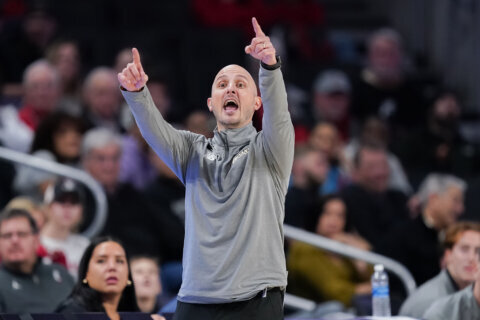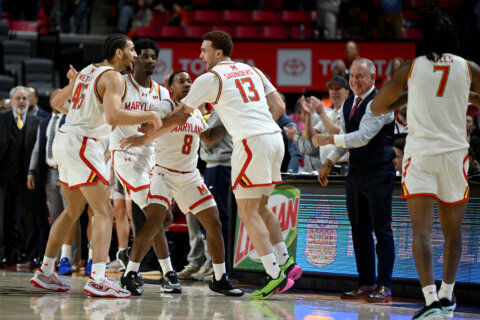WASHINGTON — Nobody reading this needs to be told what an enormous business professional sports has become.
With the global industry valued at more than $200 billion per year and growing, Ivy League graduates now permeate the front offices of major organizations, driving up the demand for higher education related to the field. Perhaps, then, it shouldn’t be surprising that sports management programs are offered at more than 600 schools now.
The market has flooded with such programs in the last 10 years, offered as undergraduate majors, non-MBA masters programs and even as simple certificates from institutions of higher learning, often at a cost of several thousand dollars.
One of the first such programs was Georgetown University’s Masters in Sports Industry Management program, started with just 40 students, but now the largest of its kind in the world.
Matt Winkler was one of the developers of that program, after having worked in the field of sports information for colleges and events such as the World Cup. Winkler has watched the industry grow up and develop, branching into areas he couldn’t have conceived of when he helped launch the Georgetown program.
“There’s been a sort of metamorphosis of the global sports industry, where anybody in the world can be one click away,” he told WTOP in a recent conversation. “We saw this kind of third wave of the sports industry coming on, and it was about a bunch of things: strategy, analytics, technology enterprises and innovation.”
That led him to his current project — a program not for fresh-faced, internet-savvy college grads, but a higher-level graduate degree aimed at working professionals in their 30s to 50s, offered entirely online. So American University’s Master of Science in Sports Analytics and Management was born.
“Even if you’re 30 right now in the industry, you weren’t taught this,” Winkler said of what his new program offers. “(You) certainly weren’t taught analytics, consumer media, enterprise and technology innovation.”
Taught as a series of 12 consecutive eight-week classes, the program requires about two hours of online class time and two hours of independent study per week. Winkler will teach the introductory class — Strategic Management of Global Sports Organizations — as well as the Capstone Thesis class that finishes the five-course curriculum specific to the program. An additional seven courses from the School of Professional and Extended Studies (such as Emerging Technology Trends and Analytical Business Writing) round out the 24-month degree.
As much as emerging technologies and delivery methods are a part of the curriculum, Winkler himself was the one who needed to be sold on putting the program online.
“Up until mid-November last year, I refused for it to be online,” he said. “It’s an applied management science. You have to ‘do’ … To be that, you kind of have to be in person.”
After years of management programs whose students were college graduates moving to D.C. from around the country, the online component was the only way to be feasible for the type of student Winkler aimed for. But it also fit the new paradigm of the industry — the next evolution in the global business of sports, where anyone with internet access is just a click away from their team, even halfway around the world and even when games aren’t being played.
“That will be the future … this consortium of platforms [on which] people can consume sports on not just a yearly basis of seasons — remember when there used to be an offseason — but any time,” he said.
The approach has already been validated: Winkler’s first wave of applications from prospective students came from as far away as Texas, Colorado — even Switzerland.
The program’s advisory council comprises a dozen professionals from around the world of sports, anywhere from the NBA to ESPN to Under Armour to the Special Olympics, all of whom own AU degrees.
One member is Ryan Kuehl, vice president of sports marketing and sponsorship at Under Armour, best known for signing Jordan Speith. The former Walt Whitman High School and University of Virginia star came through American’s MBA program and will also guest lecture as part of the MS in Sports Analytics & Management.
“The importance of data analytics and technology implementation is shifting the focus of the sports landscape toward a series of individual enterprises, beyond the traditional stakeholders — teams, leagues, players, agents, sponsors and broadcasters,” said Kuehl. “Now, thanks to these continuous innovations, brands aspire to a more personal relationship with diverse audiences and seek to build deeper engagements with fans and consumers.”
Admission is open on a rolling basis, but Winkler is looking for no more than 15 students to start the first semester of the program when classes begin Jan. 9.
Applications will be accepted up until two weeks before the start date; otherwise, those interested will have to wait until the next intro course is taught in July.
As the business of sports continues to grow and develop into new arenas, so too will the demand for training and education to keep up. Only time will tell whether AU’s new program is the first step in the next wave of that trend.







